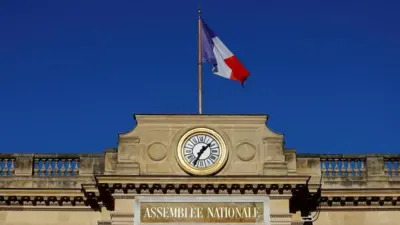We've updated our Privacy and Cookies Policy
We've made some important changes to our Privacy and Cookies Policy and we want you to know what this means for you and your data.
Council staff reject 1.5% pay rise over three years
Scottish council workers have rejected a three-year pay offer, paving the way for possible industrial action.
Some 80% of Unison members voted against a 1.5% rise by 2013. Unite and the GMB have already rejected the deal.
The unions want a one-year deal worth 3% or £600, whichever is greater, and a £7 minimum wage.
The Scottish government said pay restraint was needed in the public sector, while the Tories branded the move the "politics of the madhouse".
The proposed deal would have seen staff getting a 1% increase this year, followed by 0% in 2011-12 and 0.5% in 2012-13.
Stephanie Herd, who chairs Unison's Scottish local government committee, said: "This overwhelming rejection shows how strongly our members feel about an offer that is in reality a three-year pay cut.
"It is not surprising that our members feel angry and voted No, when chief officials in local authorities were awarded 2.5% and teachers 2.4%.
"It is unacceptable to attempt to tie many of the lowest paid public sector workers, who deliver essential frontline services, into a three-year deal worth 1.5%."
A report last week on the funding cuts facing Scotland over the coming years warned that up to 60,000 jobs - or one in 10 - could go in the public sector, depending on levels of pay restraint.
A two-year pay freeze is planned for public servants south of the border, except full-time workers who earn less than £21,000, who will get an annual rise of £250.
The Scottish unions will meet later in the week to decide their next move.
But Unison lead negotiator Dougie Black said: "Industrial action is one of a range of possible options we will be considering.
"We will also be seeking an early meeting with the employers to reopen negotiations following this decisive rejection of their offer."
Tory finance spokesman Derek Brownlee said: "Thousands more jobs will be lost if workers demand a pay rise on this scale. It's time the unions saw sense."
Liberal Democrat finance spokesman Jeremy Purvis said those earning less than £21,000 should get a pay rise with restraint, but that the pay bill for those making more than £80,000 should be cut.
"This is fair and will help to reduce the deficit and means that those who earn the most shoulder more of the burden," he said.
The pay of local authority staff is a matter for councils, but a Scottish government spokesman said the funding allocated to councils has been increasing.
He added: "The finance secretary has been clear that pay restraint in the public sector is needed in the years ahead."
'Good deal'
The local government organisation Cosla said there was a strong likelihood that no offer would now be made for 2010-11.
Councillor Michael Cook of Cosla said it had already been made clear that the offer represented "the absolute extremity" of what councils could afford, and he added that it was felt by some to be beyond the limits of affordability.
He described the offer as a "good deal" in unprecedented circumstances.
"Employers were only able to offer this level of pay increase by making it part of a three-year deal which offered certainty for the period ahead," he said.
"Since that offer was made, the financial climate, already the worst in living memory, has become even more bitter.
"We will now consult with our members authorities."
Top Stories
More to explore
Most read
Content is not available








